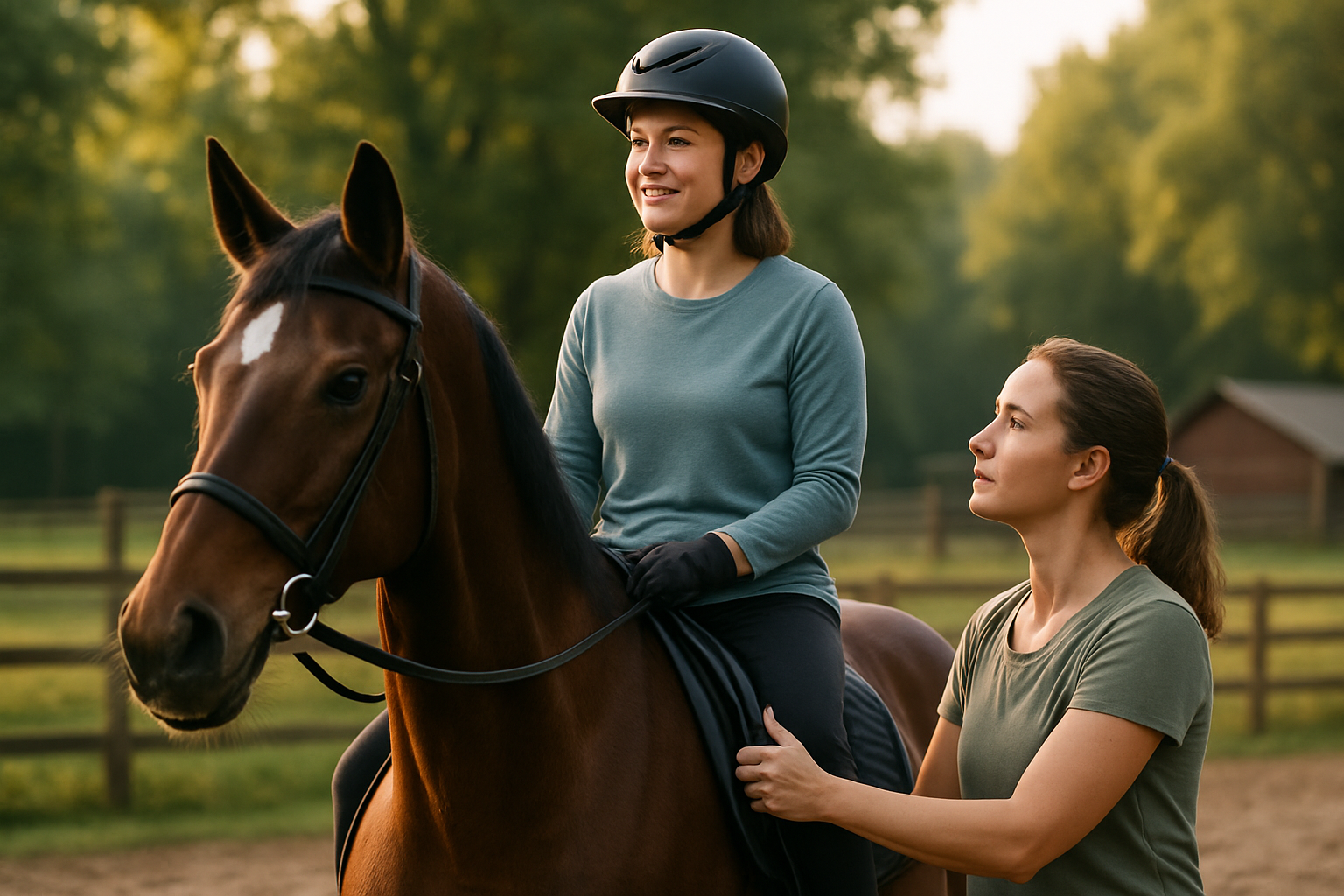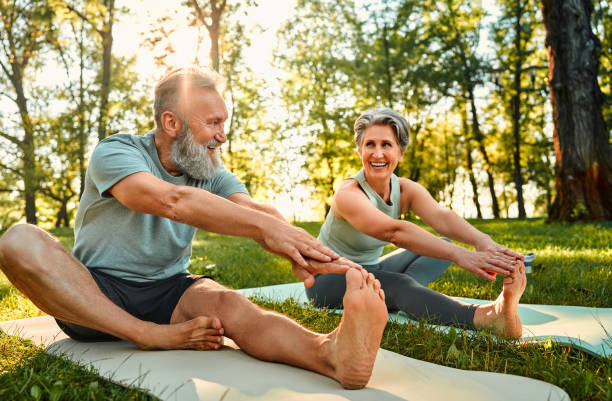Horse Riding Tips to Help You Create an Unforgettable Equestrian Experience
Riding camps offer a perfect opportunity for both beginners and experienced riders to get up close and personal with horses in a beautiful outdoor setting while improving their riding skills. To make the most of your time, it's essential to follow some key riding tips. Choose a camp that suits your skill level and interests, and prepare a thorough packing list to ensure you bring all the necessary items for a wonderful experience.

Horse riding combines physical skill, emotional connection, and technical knowledge to create experiences that stay with riders for a lifetime. Building a strong foundation in horsemanship involves understanding your mount, developing proper posture and balance, and continuously seeking opportunities to refine your abilities. The journey from novice to accomplished rider is filled with learning moments, challenges, and the profound satisfaction that comes from partnering with a horse.
What Are the Essential Techniques for Beginning Riders?
Mastering the fundamentals sets the stage for all future equestrian pursuits. Proper mounting technique begins before you even place your foot in the stirrup—approach your horse calmly from the left side, gather the reins correctly, and mount smoothly without startling the animal. Once seated, maintain a balanced position with heels down, shoulders back, and eyes looking forward rather than down at the horse. Your hands should remain steady and gentle on the reins, communicating through subtle pressure rather than harsh pulling. Developing an independent seat—where your balance comes from your core rather than relying on the reins—takes time but transforms your riding ability. Practice walking, trotting, and eventually cantering while focusing on maintaining rhythm with your horse’s movements. Regular lessons with a qualified instructor accelerate your progress and help identify areas needing improvement before bad habits form.
How Can Horseback Riding Camp Programs Enhance Your Skills?
Structured camp programs provide immersive learning environments where riders dedicate concentrated time to improving their abilities. Horseback Riding Camp Programs typically offer daily riding sessions, ground work instruction, horse care education, and often specialized disciplines like jumping, dressage, or trail riding. These programs benefit riders of all levels by removing everyday distractions and allowing complete focus on equestrian development. Many camps pair less experienced riders with patient school horses while providing appropriate challenges for advanced participants. The residential nature of most camps builds confidence as riders take responsibility for grooming, tacking, and caring for their assigned horses throughout the day. Beyond technical skills, camps foster community among horse enthusiasts, creating friendships based on shared passion. When selecting a camp, consider the instructor-to-student ratio, facility safety standards, the variety of horses available, and whether the program aligns with your specific riding goals and experience level.
Are Horseback Riding Camp Scholarships Available for Aspiring Riders?
Financial barriers should not prevent passionate individuals from accessing quality equestrian education. Horseback Riding Camp Scholarships exist through various organizations, riding facilities, and equestrian foundations committed to making the sport more accessible. These scholarships typically require applications that may include essays about your riding goals, letters of recommendation, and sometimes videos demonstrating your current skill level. Some scholarships target specific demographics, such as youth from underserved communities, riders with disabilities, or those pursuing competitive equestrian careers. Organizations like the United States Pony Clubs, local 4-H chapters, and individual riding academies often maintain scholarship funds. The application process usually opens several months before camp sessions begin, so planning ahead is essential. Even partial scholarships significantly reduce costs, making week-long or multi-week programs feasible for families with limited resources. Beyond covering tuition, some scholarships include equipment loans, ensuring participants have proper helmets, boots, and riding attire.
What Advanced Training Does Vaulting Clinics Training Offer?
Vaulting represents a unique equestrian discipline combining gymnastics, dance, and horsemanship performed on a moving horse. Vaulting Clinics Training introduces riders to this artistic sport, developing core strength, balance, and body awareness that translate to improved performance in traditional riding disciplines. During clinics, participants learn compulsory movements performed at walk, trot, and canter gaits while the horse moves in a circle controlled by a longeur. Basic vaulting exercises include mounting and dismounting the moving horse, kneeling, standing, and performing choreographed routines. These clinics welcome both individual vaulters and teams, with instruction tailored to experience levels from absolute beginners to competitive athletes. The physical demands of vaulting build exceptional fitness, while the requirement to move in harmony with the horse’s rhythm enhances timing and feel. Many riders discover that vaulting training improves their confidence and position in the saddle, even if they never compete in the discipline. Clinics typically span one to several days and provide access to specially trained vaulting horses and professional coaches.
Can You Pursue an Equine Masters Degree for Professional Development?
For those seeking to transform their passion into a career, advanced academic credentials open doors in equine science, business, and education. An Equine Masters Degree program offers specialized study in areas such as equine nutrition, reproduction, facility management, sports medicine, or business administration focused on the horse industry. These graduate programs combine rigorous coursework with practical application, often requiring thesis research contributing new knowledge to the field. Graduates pursue careers as riding instructors, stable managers, equine therapists, veterinary professionals, or consultants to breeding operations and competition facilities. Programs vary in focus—some emphasize scientific research while others concentrate on business and management aspects of the equine industry. Admission typically requires an undergraduate degree, though not necessarily in an equine-related field, along with demonstrated experience working with horses. The investment of time and resources in graduate education pays dividends for those committed to leadership roles within the equestrian community, whether in academia, private enterprise, or nonprofit organizations dedicated to horse welfare and rider development.
What Daily Practices Create Lasting Equestrian Memories?
Unforgettable experiences emerge from consistent engagement rather than occasional grand gestures. Spend time with horses beyond riding—grooming sessions build bonds while teaching you to read equine body language and spot health concerns early. Hand-walking horses through varied terrain develops trust and allows both horse and handler to relax together. Observing horses in pasture reveals their social dynamics and individual personalities, deepening your appreciation for their complexity. Document your journey through photos, videos, or a riding journal that tracks progress, challenges overcome, and goals achieved. Participate in barn community events, volunteer for horse rescues, or attend equestrian competitions as a spectator to broaden your understanding of the sport’s diversity. Challenge yourself with new disciplines—if you typically ride English, try Western, or explore driving, endurance riding, or working equitation. Each experience adds dimension to your horsemanship and creates stories you will share for years. The most memorable moments often occur during quiet interactions—the soft nicker of greeting, the satisfaction of a perfectly executed transition, or the simple pleasure of watching sunset from horseback.
Creating an unforgettable equestrian experience requires dedication to continuous learning, willingness to step outside your comfort zone, and genuine appreciation for the horses that make it all possible. Whether you pursue formal education, attend specialized clinics, or simply commit to regular riding with focused intention, each hour spent with horses enriches your life. The equestrian journey offers no final destination—only an evolving relationship with these remarkable animals and the endless opportunities they provide for growth, challenge, and joy.




